Fencing Sport Photography was never part of the plan, I was running an e-commerce store with a business partner, an investment and labour of love with 80 hours of work per week over 4 years. We started during the pandemic, built from the ground up with a steady growth and at times faced many unexpected challenges. Although I learned a great deal on how to operate an online business I didn’t feel that it was my calling to do that for life, but more of a bridge to the next best thing. Then Boom! Fencing came into the picture which casually disrupted my lifestyle and out of curiosity fencing photography followed. Being a commercial photographer for 25 years, this transition feels like clockwork until I decided to turn the fencing photography into a content platform.
Sport is an uncharted territory. I didn’t wake up one morning and decided to take up fencing, photograph the sport then initiate a platform for fencers to share their journey. I’ve made some sacrifices, let go of a few things, along with self-conflict ‘Am I doing the right thing selling the business, should I push for another financial year?’ I wanted a clean break and be my own boss again. I went through a lot of mental prep and now navigating life from an entirely new perspective.
This is a huge turning point for me and Fencing Sport Photography is one of my most ambitious projects.
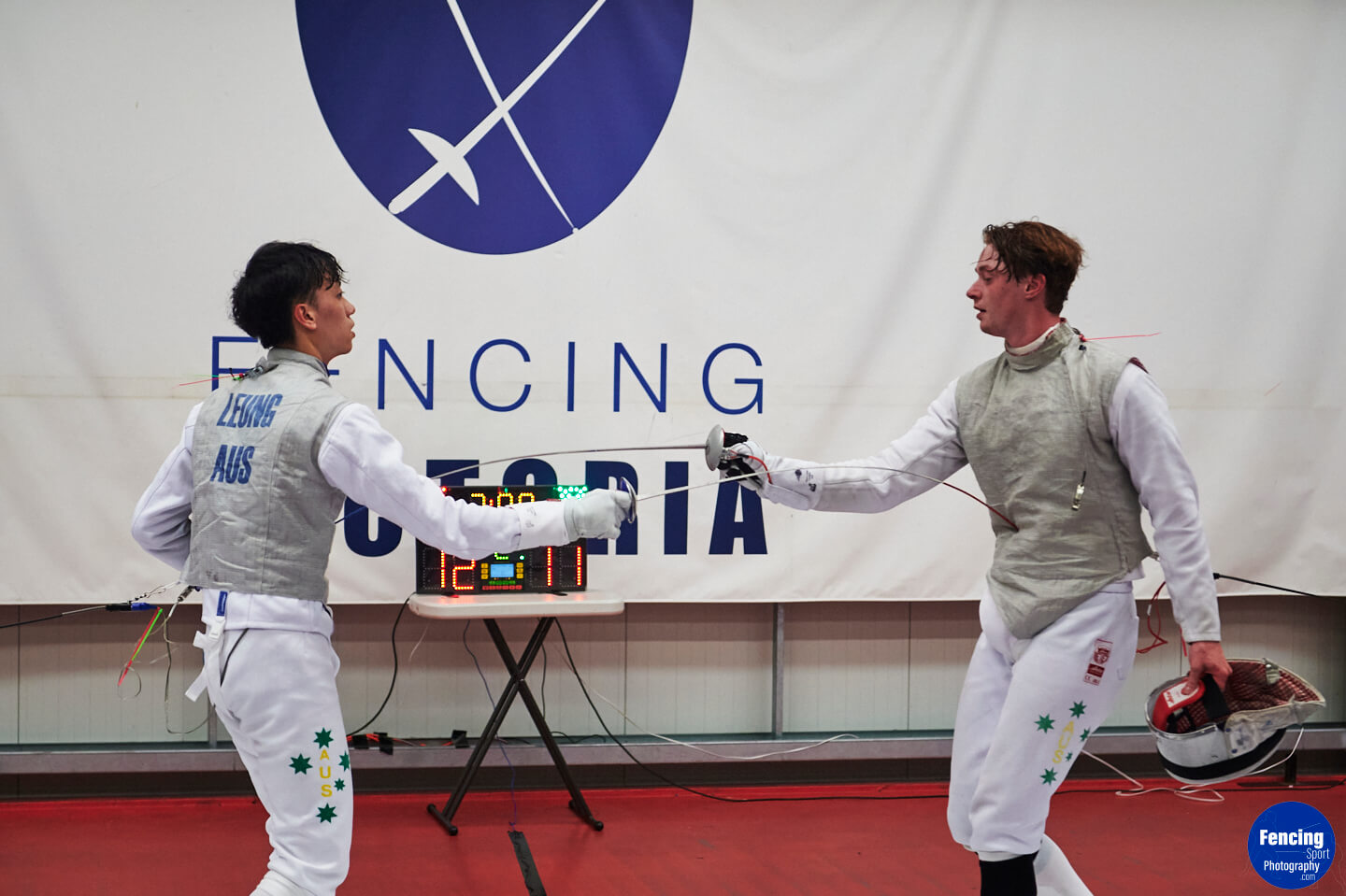
Julian Leung v Matt Foster at 2022 AFC#4 Final
Contributor: Matt Foster (Men’s Foil – Australian Fencing Team)
Producer / Photographer: Ed Chiu
Date: Nov 2024
A career fencer’s journey is not dissimilar.
Sport, much like life and anyone’s professional career can have many nooks and turns, nothing worth doing is straight forward. In fencing, you don’t always win and in business not every campaign is guaranteed a success and learning to ‘deal with it’ takes a lot of courage and time. Coping mechanisms can develop over time when you have more life experience, although it can be challenging but there are steps that you can take.
The starting point for Matt Foster, Men’s Foil of the Australian Fencing Team is focused and admirable. His curiosity with fencing at the age of 10 was the beginning of his enthralling fencing journey. There is something to be said about people who act upon their curiosity, they want to learn – it is the key to knowledge.
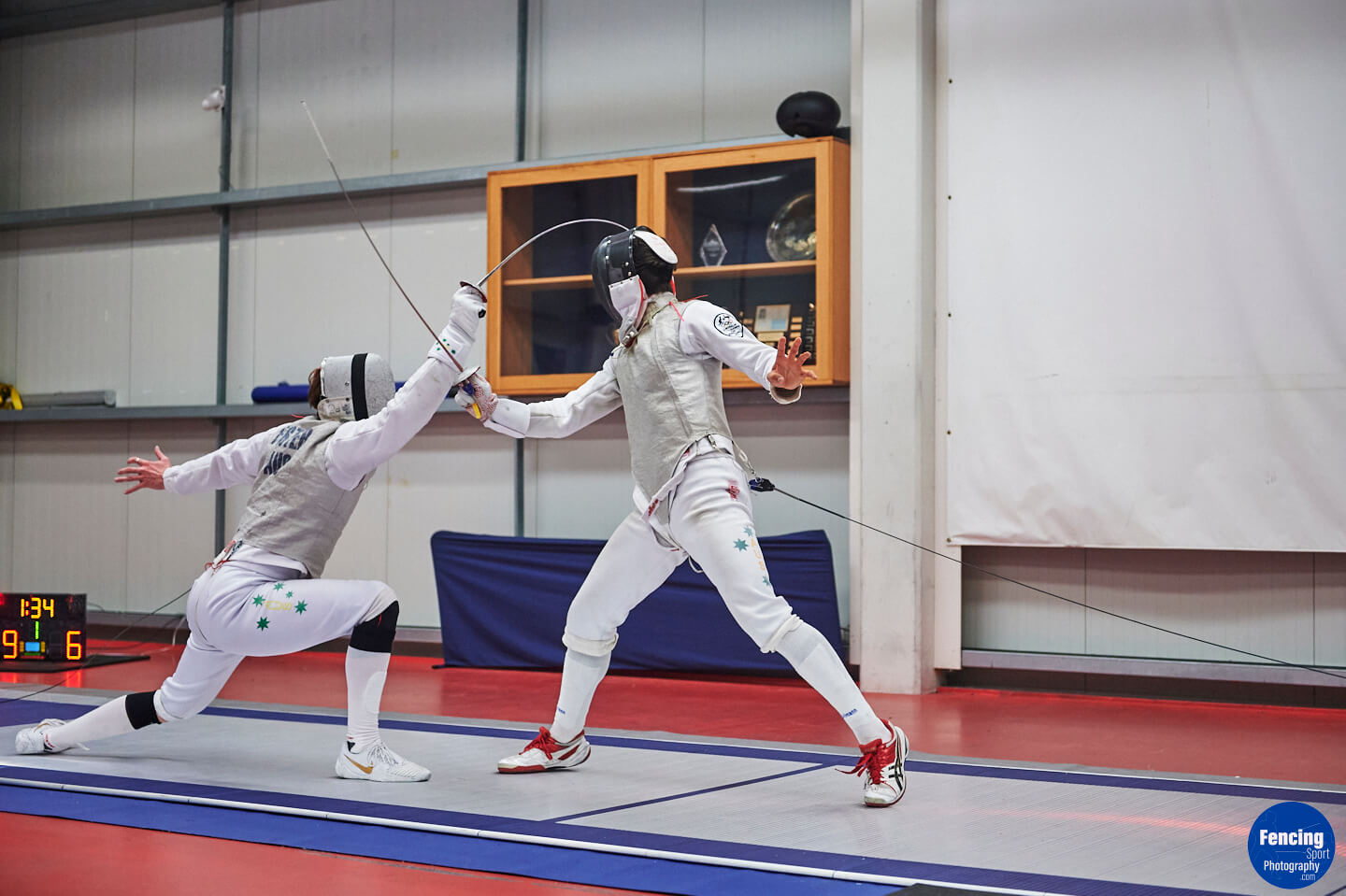
Matt Foster v Robert Ciccarelli at 2022 AFC#4 Semi
“I was number 1 in senior, junior and cadet on multiple occasions from 2013 until 2023. Top 5 consistently in seniors from 2013 until 2018, and top 100 international seniors in 2014, I believe at 17 years old.”
Matt worked hard from being “terrible” – (his words) to become an elite fencer over many years of training, competing, winning, dealing with losing – Repeat.
At 21, following a series of injuries, he retired from fencing. Matt’s decision for quitting the sport was not an overnight decision, neither is his recent plan to come back to fencing for the 2024/25 season only to be delayed by further setbacks with the rehabilitation for the meniscus operation on his knees. But this time he is doing this properly; he couldn’t have done this without changing his perspective. This is his turning point.
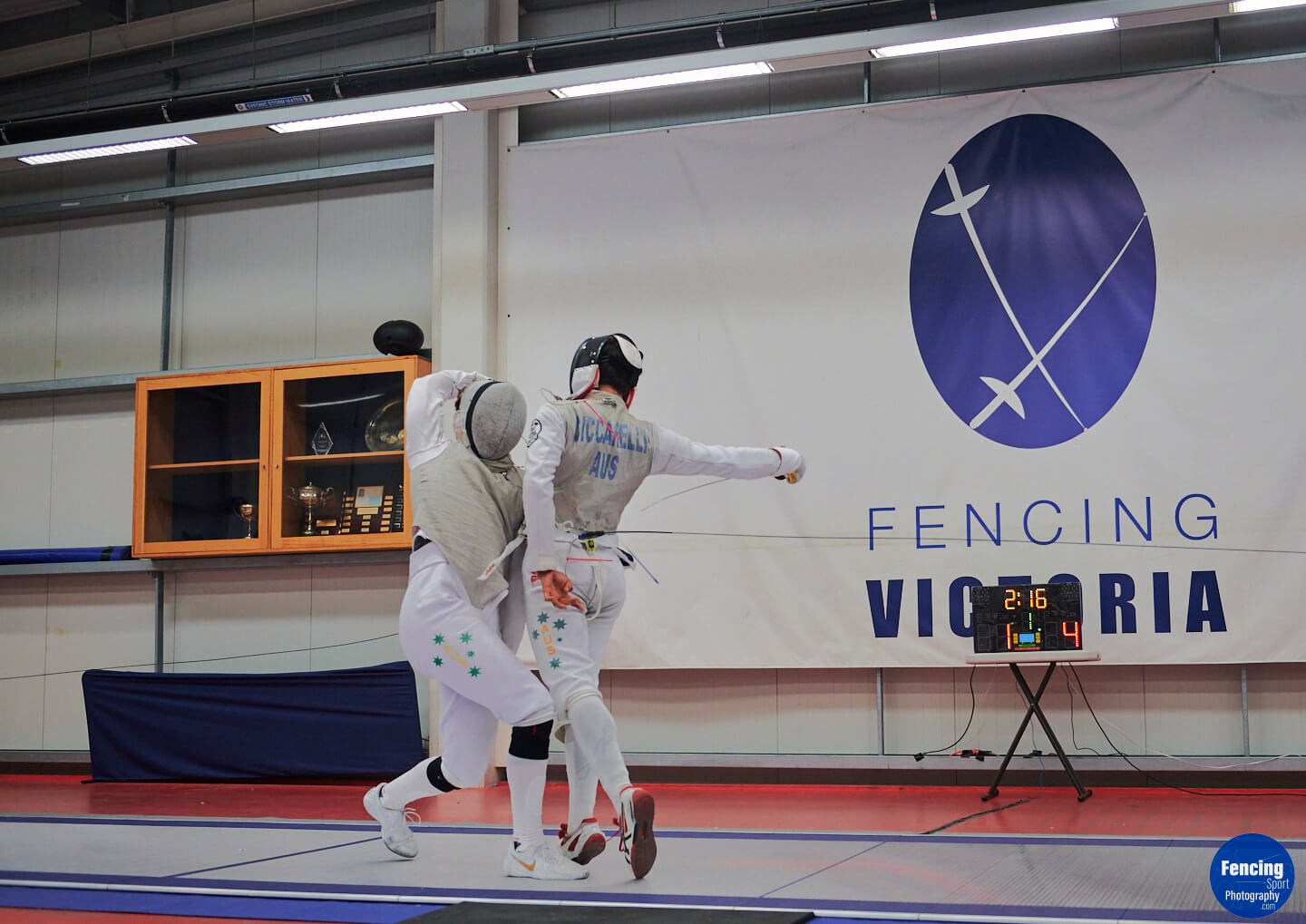
Matt Foster v Robert Ciccarelli at 2022 AFC#4. Both fencers displayed dynamic choreography on the piste
This conversation with Matt is revealing, honest, empowering and convincing. He has gained a better perspective on how to go after his next set of fencing goals. We discussed different challenges such as injuries, mental health and growing up in the sport, dealing with unforeseen circumstances and the things and people that keep him grounded.
To gain perspective towards goal setting, you need to take a step back to look at things with an open mind, allowing yourself to accept that ‘change is inevitable‘, visualise the goals, frequently analyse the outcomes and pitfalls, assess the risks. To be honest, there is no concrete formula because there are many moving parts, and everyone’s journey is different. People around you might also be affected, so you need to take that into consideration. I tend to make some life decisions without any external influence, sometimes it works and that’s a good thing to have that independence. Then sometimes it can become like a ‘left brain vs right brain’ and that’s not good.
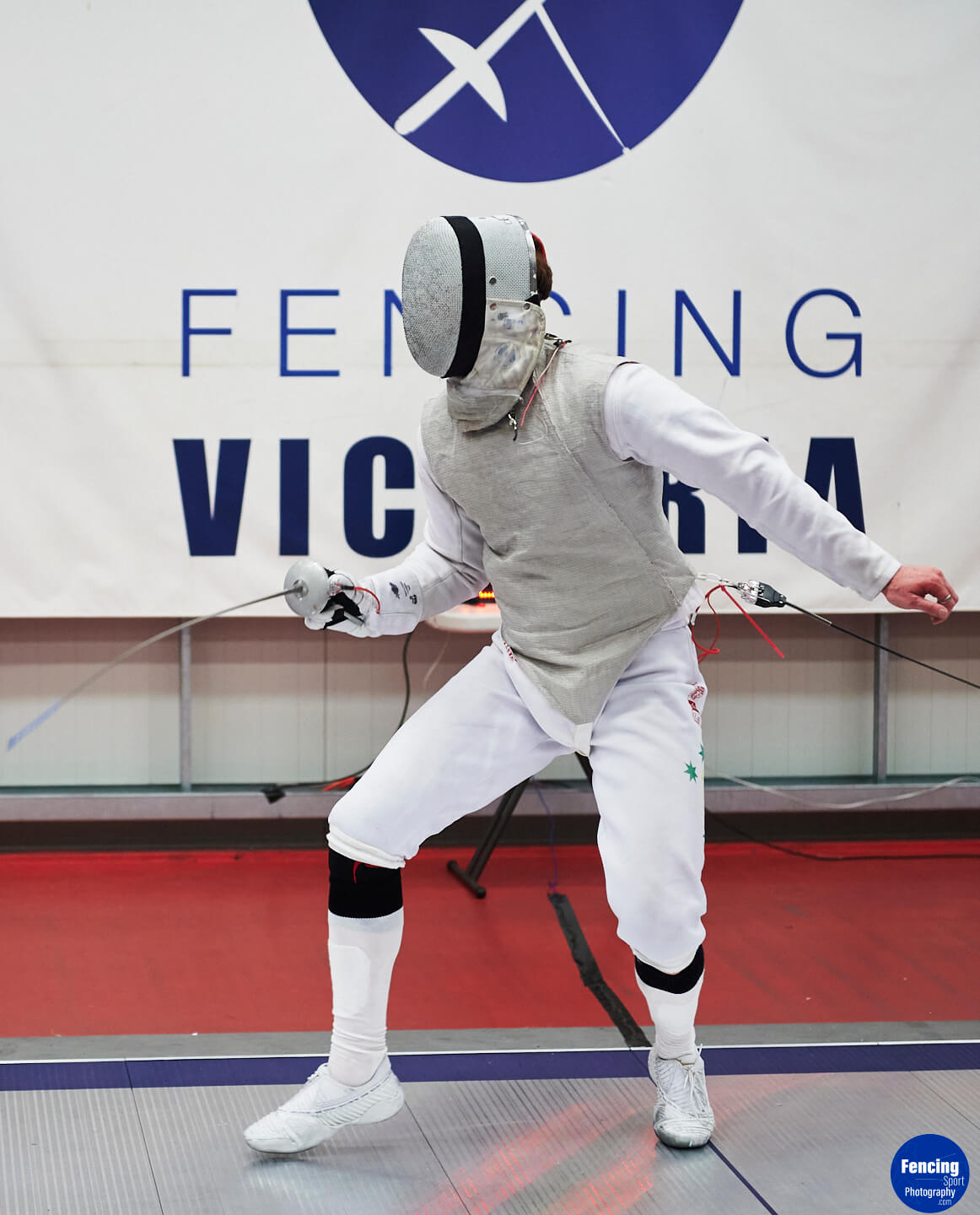
Matt Foster at 2022 AFC#4 Final. This comp was also the first time I tried photographing Foil, this was my first time shooting a fencing comp.
Matt: So I started fencing when I would have been about ten years old. I’ve read about it in a book, nagged my parents for a while to get me involved. And then just sort of kicked off from there.
And I was really lucky that I found a good club, good coach. And you know some good teammates…. I mean, I was terrible for a long time, not gonna lie. (laughs) And then eventually, I guess, just being around really good athletes and really good coaches, we sort of get to a certain level.
Ed: Do most kids love the sport when they get into it or something they grow into?
Matt: I think different people have different experiences.
Yeah, I know there are definitely guys that I grew up with who fell in love with the sport. And it’s kind of a really beautiful thing when you’re that young y’know. But I think for other people you learn, and I know speaking to some international fencers as well, and there’s more of a system and I guess more incentive to fence.
Yeah. It’s something that they learn. It’s not necessarily something that they inherently have. But yeah, it’s a really interesting sort of balance. For me, anyway I only think I really learned to love it after retiring.
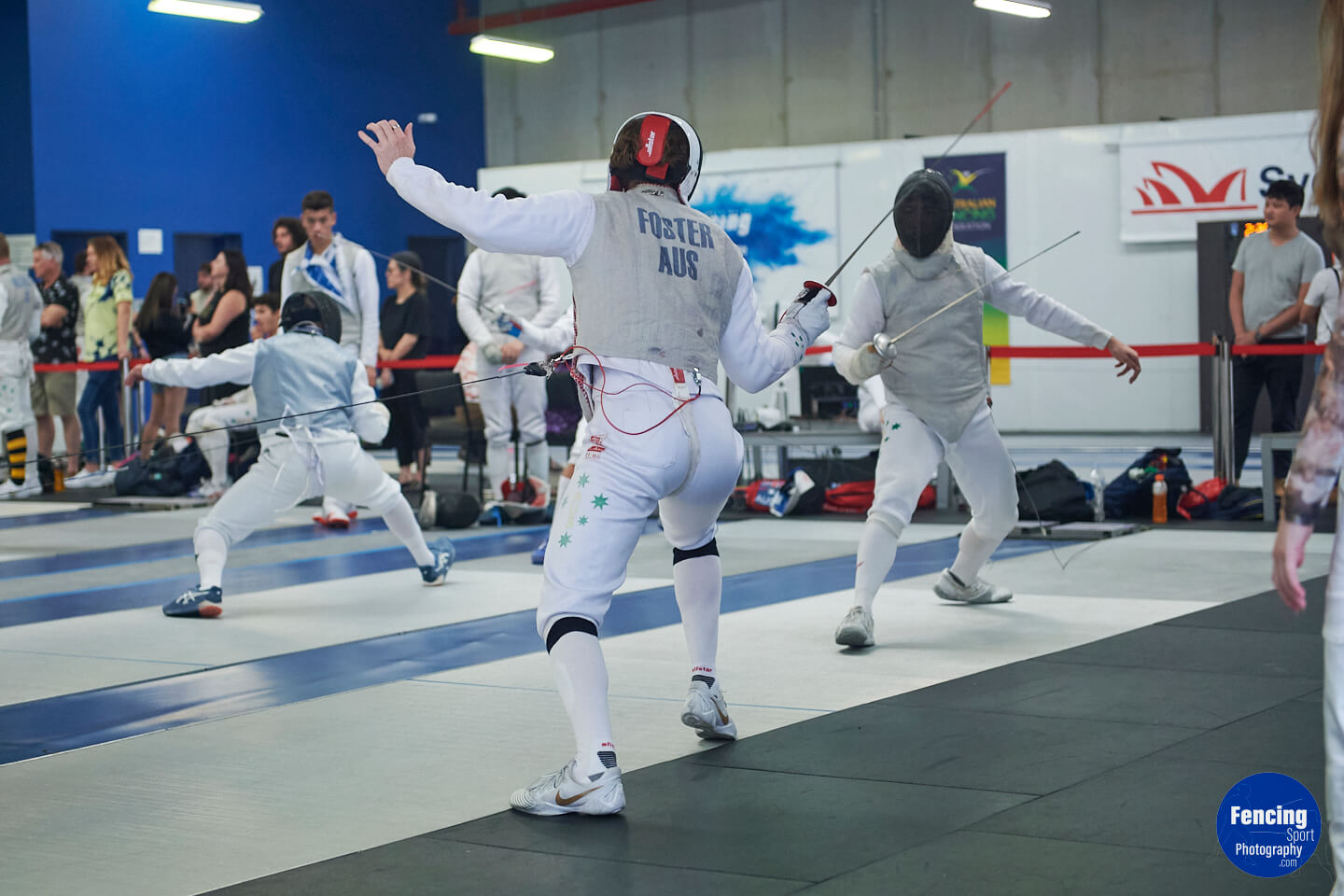
Matt Foster v Alan Lun at 2023 AFC#1 Poole. Fencing NSW
Matt continues..
I retired in 2018 post knee injury, right before the Commonwealths, tore my meniscus in my left leg and then went through the surgery and tried to rush it back, wasn’t really super successful with that.
And then Bang! Straight away after the recovery, did my hip as well. At that time with those injuries, mental health wasn’t in the best spot as well. Just that sort of self-fulfilling fencing, like where you don’t do well and your mental health declines, not having that overall perspective, it just sort of fades in time, and then a culmination of that and some family stuff.
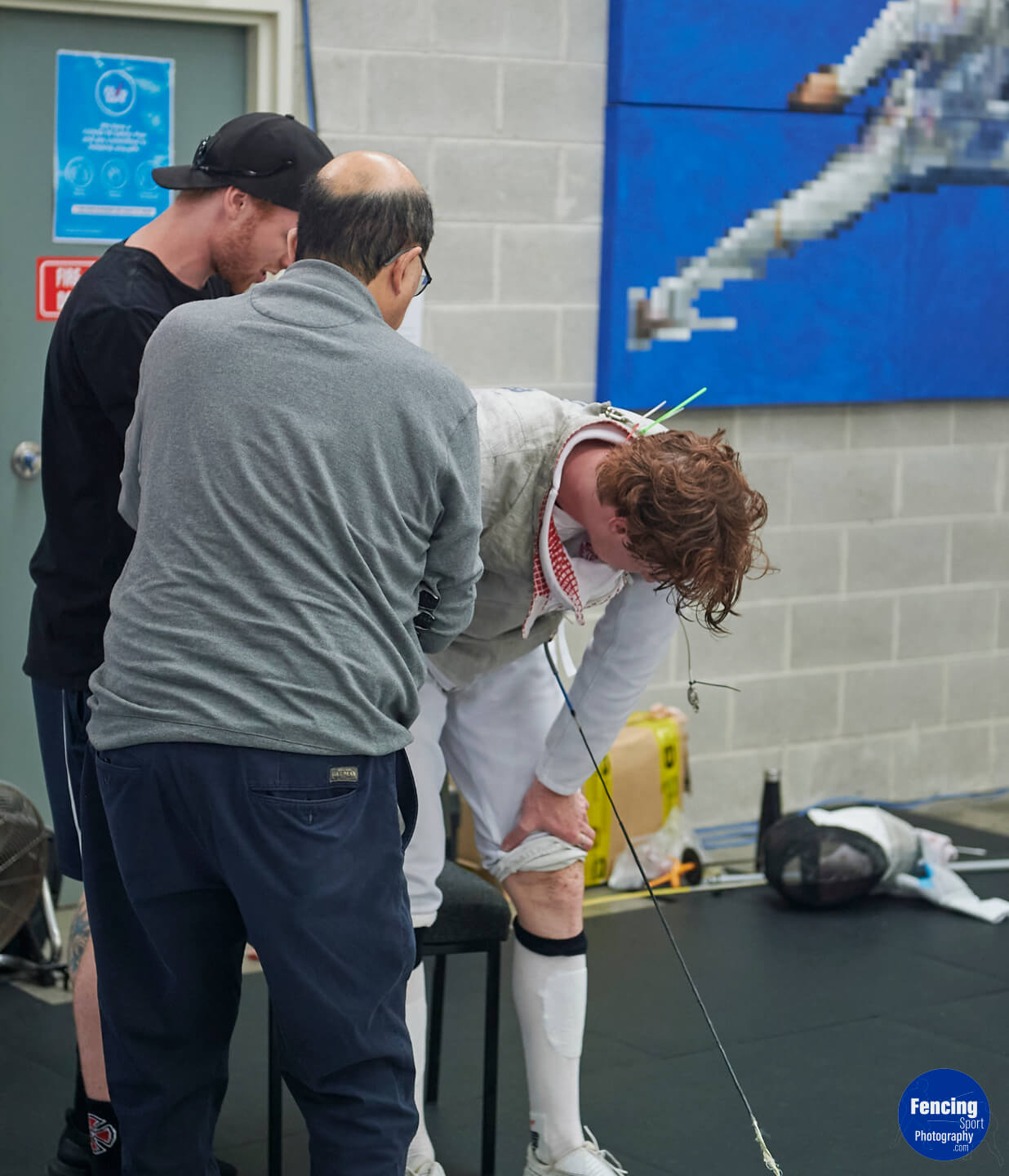
Matt Foster injured at 2023 AFC#1 during Pool, by this time he already had a meniscus surgery and have gone through rehab.
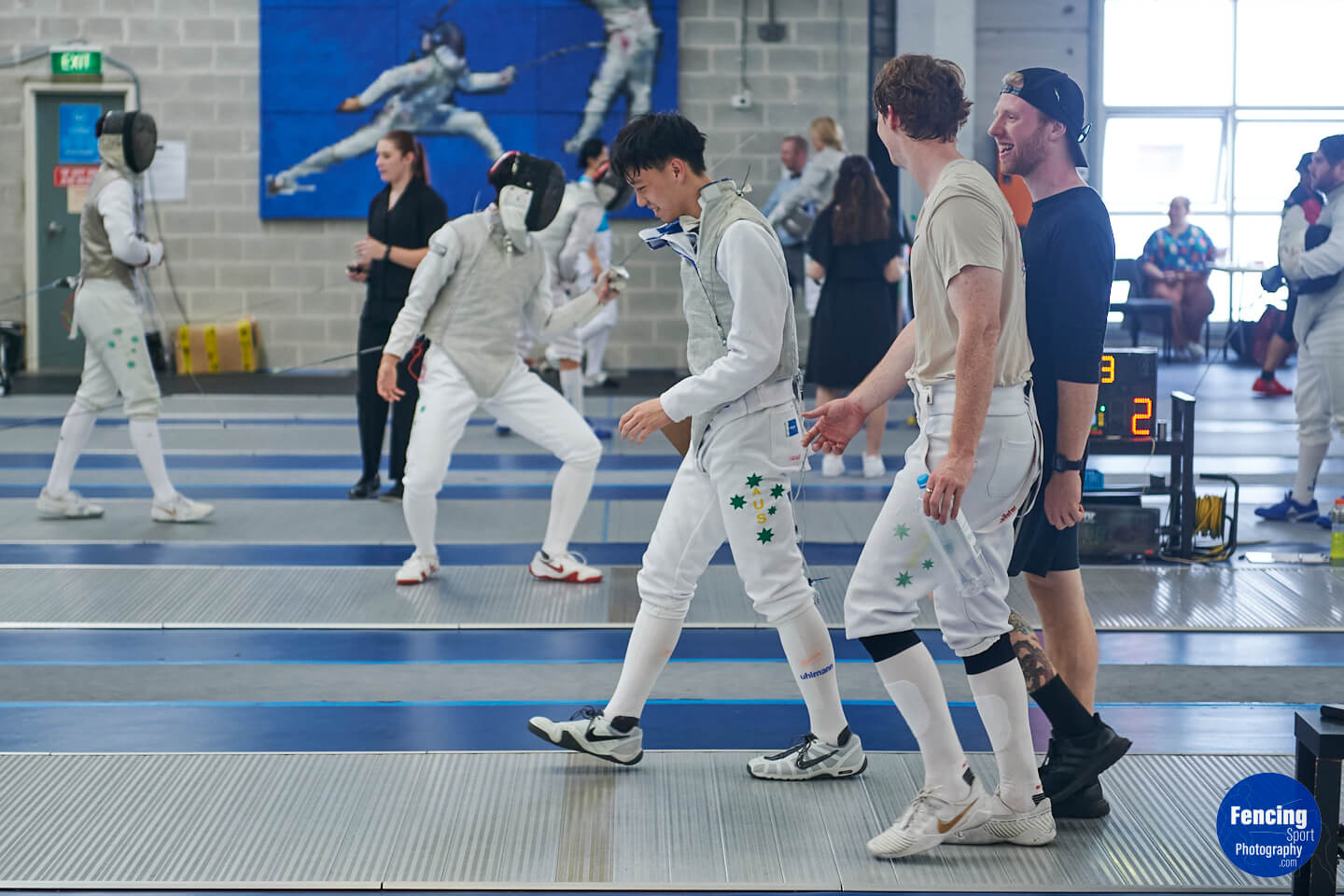
Matt Foster with Julian Leung and TC Reynolds at 2023 AFC#1 at Fencing NSW.
I called it quits, took three years off and then sort of gradually with a bit of time and space away from the sport, I think I found that sort of love for the game just by watching it. Yeah. And it sort of dragged me back in, which is a weird experience. Being away from the sport actually made me want to be more involved.
The pandemic has allowed me to take a 2 year break from commercial photography, there were a lot of restrictions for the arts and entertainment sector, the entire industry just shut down. As someone who don’t really take breaks (I even work when I am at holiday overseas but my work ethics is different to most, where I don’t think of ‘working with other talents’ work. I was having withdrawal when we were told photography in public was banned during the pandemic, like a gambler banned from the casino for life. To be honest, I didn’t think I needed a break, but I made a transition to become a more technical photographer which expanded my knowledge in photography, because the time spent during lockdown I also got to refine my technical skills with a lot of experimentation using strobes and artificial lighting.
I used that period to develop other skills such as digital producing, co-founded an e-commerce business which is something I never knew I could do. Nothing in life sets you up to become an investor and owner, it’s a risky business. Unlike buying a house and you can install a marble bench top when you have the funds. I also advanced my practical knowledge in digital asset management, these soft skills are being utilised to build this website and associate platforms.
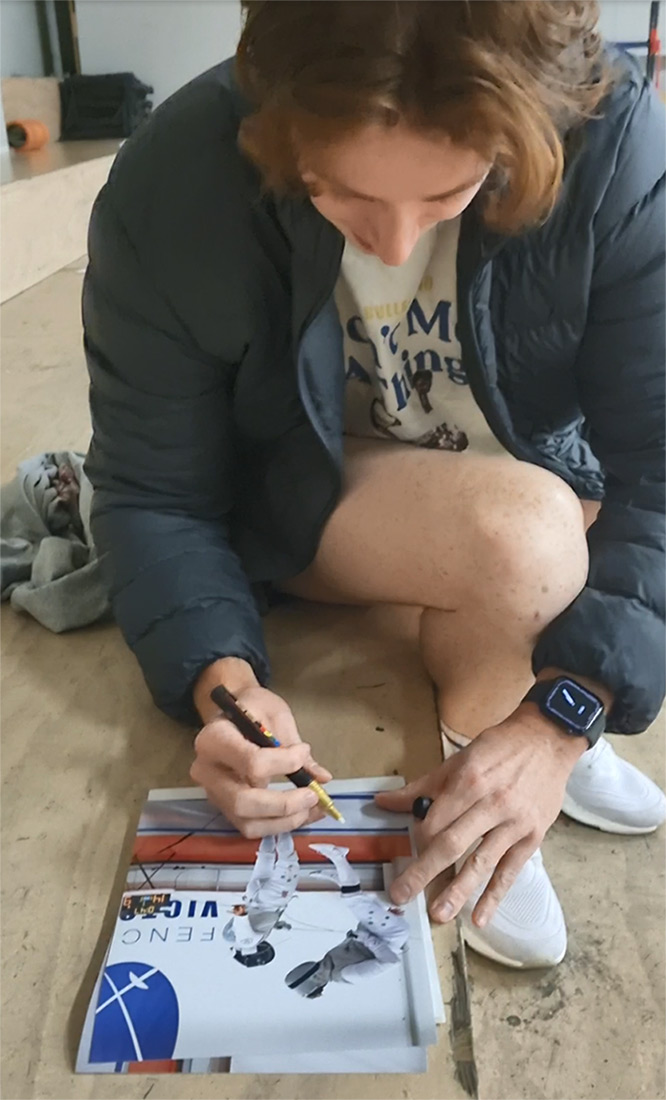
Matt autographed the photo from my ‘finalists in World Sport Photography 2022.’
Ed: What happens when you quit something that you have been doing for so long?
Matt: In 2018. I didn’t want to look at the sport, I’d say like 2 or 3 years. Like, I just was not interested at all, in anything to do with fencing. So to sort of come back out of that in 20, 2021. Yeah. Really weird timing as well. It’s sort of like coming back into that.
Ed: How did you train during the pandemic?
Matt: My housemates at the time probably weren’t really stoked with me. I was up in the morning, doing footwork out in our driveway, which was right next to the bedrooms. I wasn’t the most popular in the house. But, we had a few bits and pieces where I could do lessons.
Getting to the gym, doing gym training, with the big government exemptions and that sort of stuff. It was lonely in a lot of ways. I think for a lot of us, especially during that time. But it was sort of like the baby steps that were really good for me anyway.
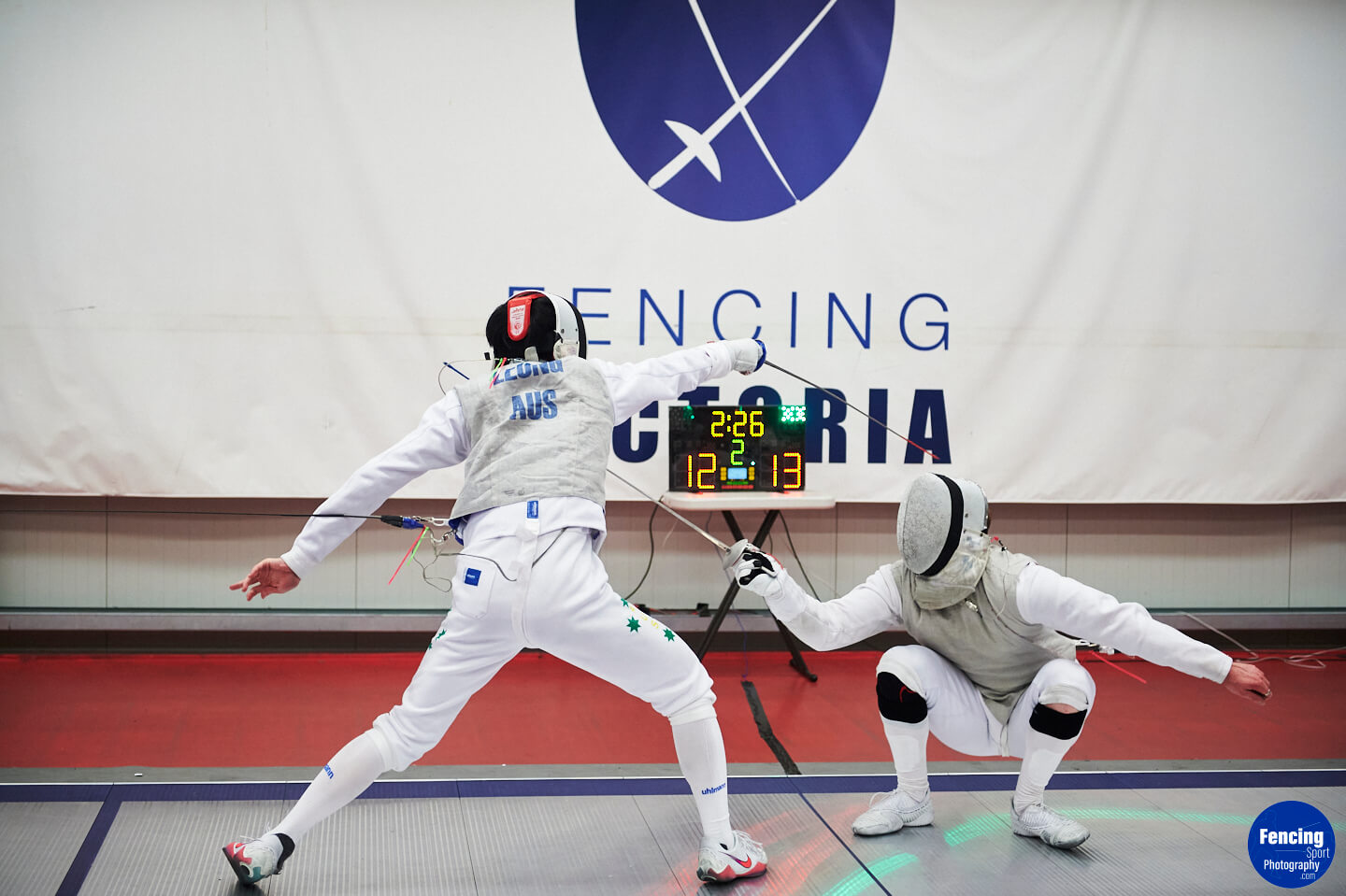
Julian Leung v Matt Foster at 2022 AFC#4 Final.
Half step, half step.. then..
Matt: That sort of portion of my journey back then kind of made it like a small introduction. And I’d put the pressure on myself.. I feel like when you’re competing, it’s so hard not to be competitive. Yeah, for me not to put the pressure on myself to be the fencer that I was, when I was sort of in a good spot in my career.
I think that was really important. And that’s also something that I’m sort of struggling with and only have just been comfortable with it; not being the athlete that I remember in my head and sort of being okay with that and sort of accepting the athlete that I am now. It’s really, it’s an interesting journey for sure.
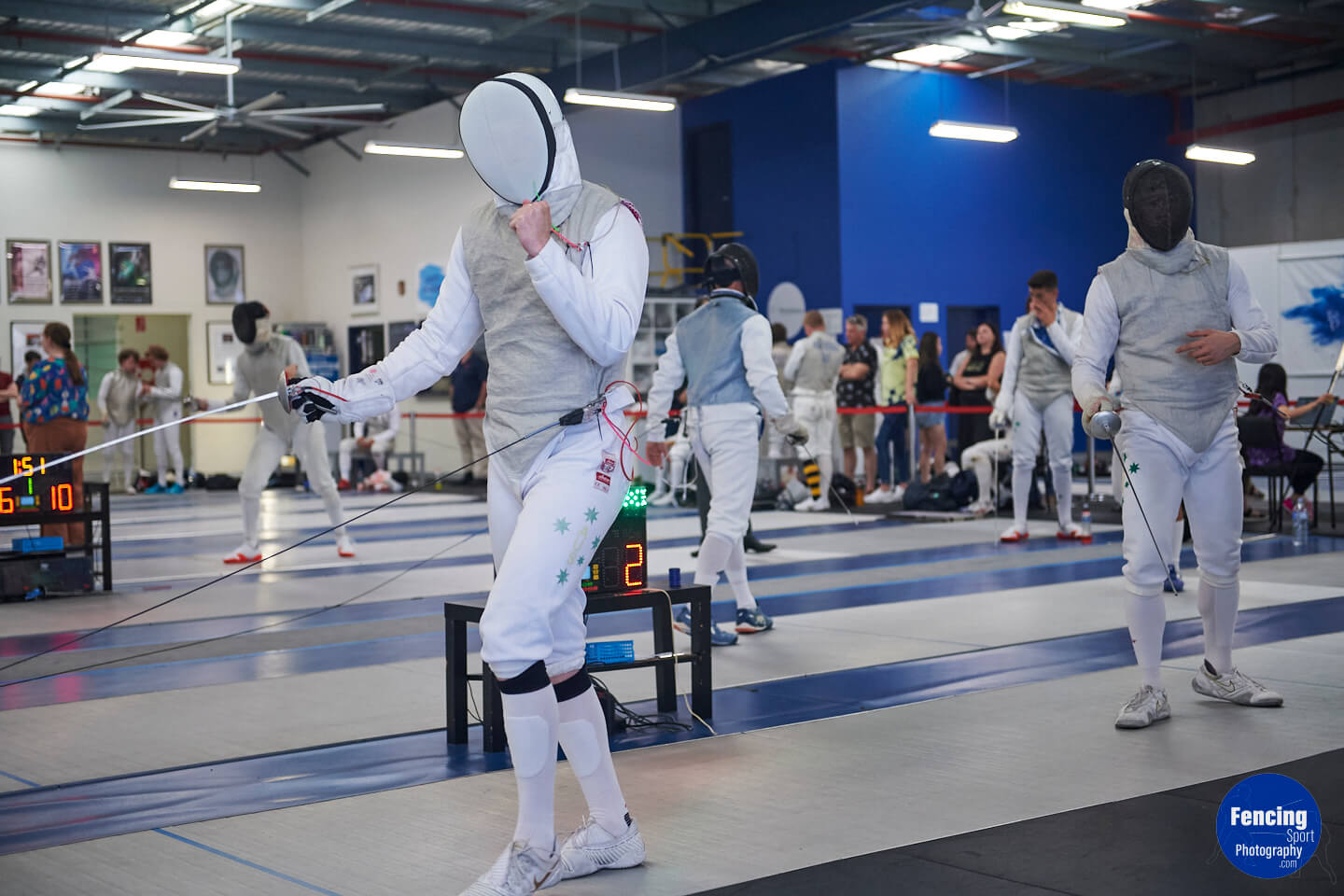
Matt Foster defeated Alan Lun at 2023 AFC#1 Poole. Fencing NSW
Yeah. I think it’s something that a lot of the people who come back out of a bit of time away from the sport, it’s something that’s pretty universal.
I gave the Asian and World Champs a bit of a crack last year. I don’t think I really acknowledged how difficult that leap would be.
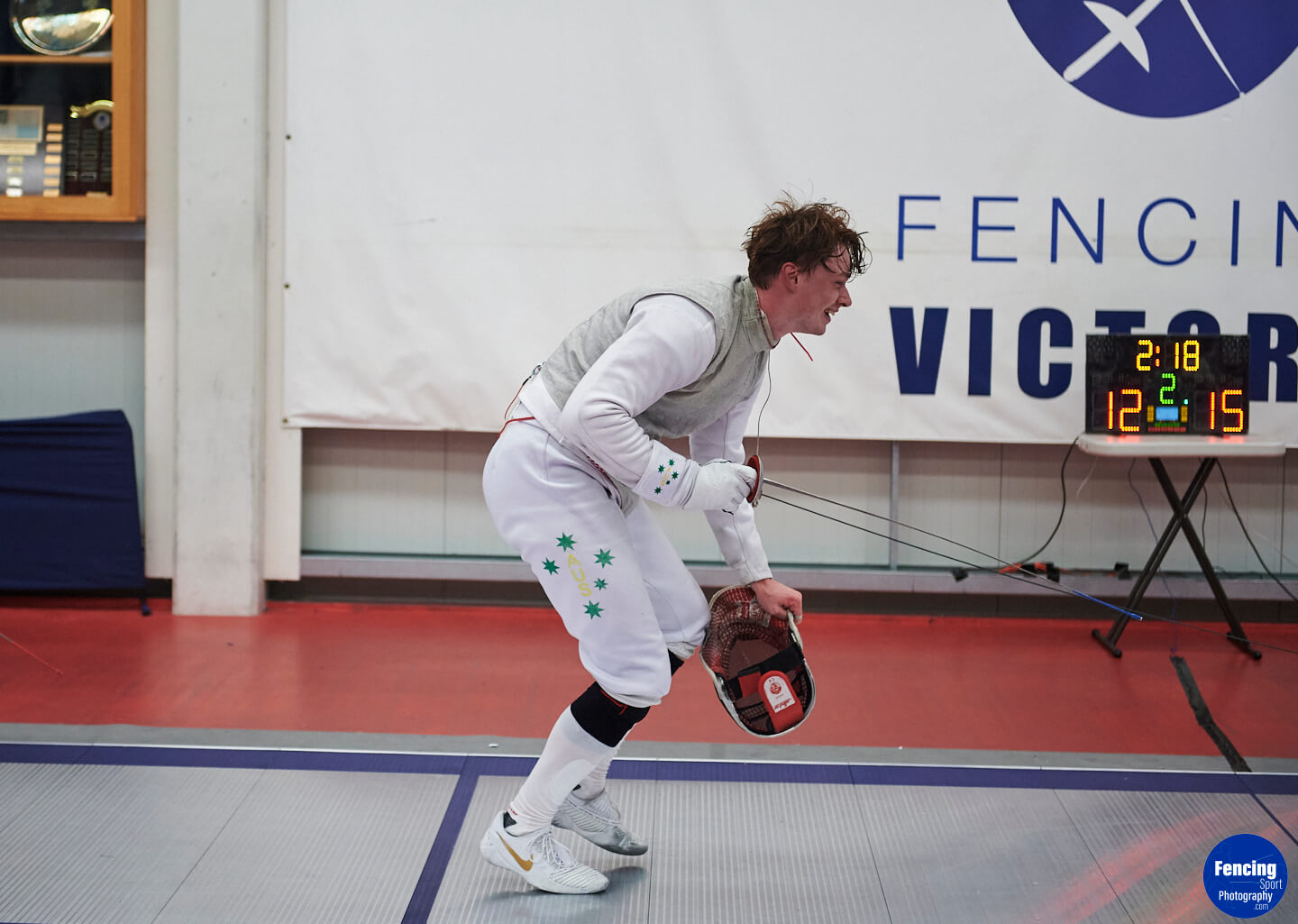
Matt Foster defeated Julian Leung at 2022 AFC#4.
A lot of people probably don’t even have these memories, maybe they have never gone after their dreams. It is much harder to gain a perspective when you have nothing to compare to.
Matt: Back again, expected to sort of jump back in without missing a beat from when I was 20 and doing those competitions, which just isn’t the case that it takes time to get to that level. I realised that it takes a little bit more work, so I took the time off and then came back into it and started training again late last year and early this year then ended up tearing my right meniscus.
And then, going through a bit of a replacement and just taking my time for that it’s definitely frustrating. But at the same time, it’s good to have that perspective.
Ed: Were you on your path for a comeback?
Matt: Yeah, for the next comp. I was thinking, playing around Perth, and then kick off the domestic season, a couple of World Cups later in the year.
Yeah, I sort of just started that process all over again. Bit of a speed bump, obviously. Yeah.
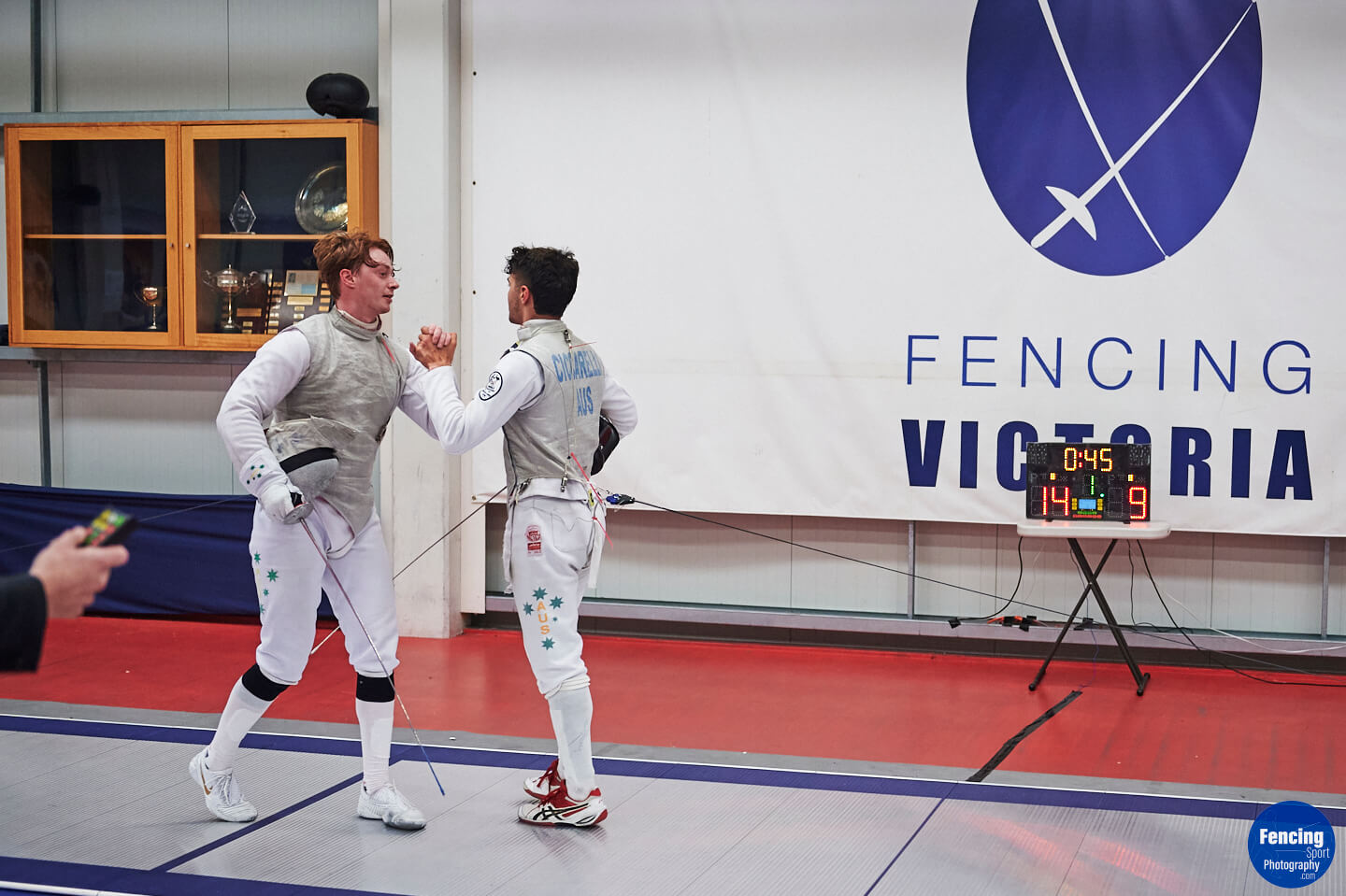
Matt Foster defeated Robert Ciccarelli at 2022 AFC#4 Semi
Ed: And usually. How long is it for recovery? You have rehab and then physio.
Matt: Yeah, so for a meniscus I just sort of like go into surgery, take out the torn bit. It’s normally around 4 to 6 weeks before you are back at the sport. And then, so I’m bang on that four-week mark. That’s sort of an Okay recovery process. In the process of going in and getting a meniscus replacement, which is something that I didn’t know you could do.
This is where I pretty much get a donor, and just take mine out for a fresh run on a new set of wheels. Yeah and that process is a lot longer than six weeks, without being able to walk, and then another 4 or 5 months before you return to the sport.
It’s a much longer process. It’s probably more similar to an ACL than another regular meniscus from one of its own.
Does it hurt like at the moment?
It’s pretty good. I’m doing rehab for the rest of the year. At the moment I feel like I’m in pretty good shape. Yeah. Just a little bit uncomfortable in some actions. But I’m not thinking about it day to day.
Ed: At the moment, are you still training in fencing, is that okay to do?
At the moment I’m just sort of doing some pretty low-key lessons.
Ed: So not long lunges.
Matt: Yeah. And nothing too dynamic and definitely not chaotic, like balance and stuff. Yeah, at this point I’m just sort of like, because the meniscus that they have removed was protecting the cartilage around that, because that’s now like that cartilage itself.
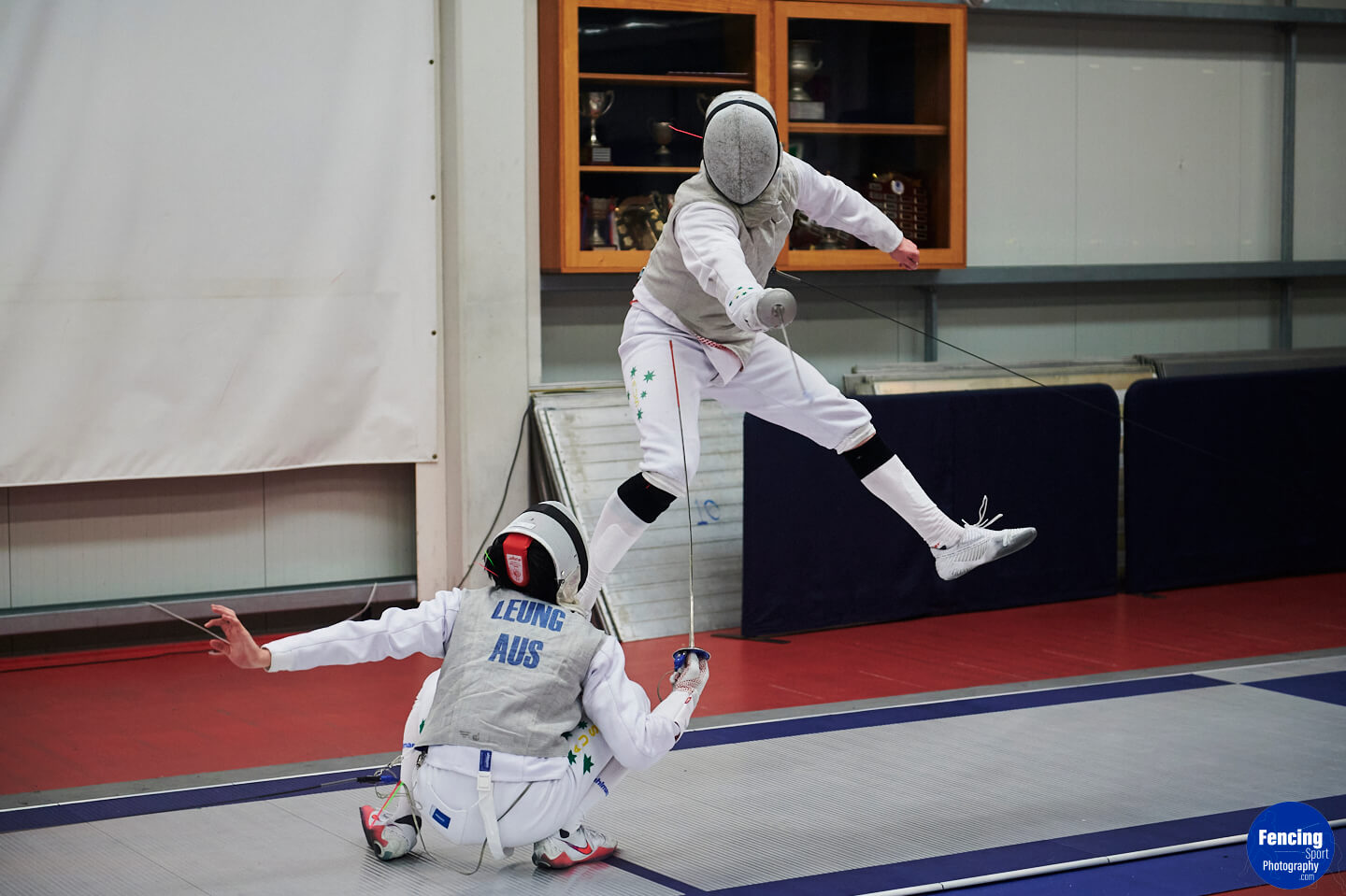
Julian Leung v Matt Foster at 2022 AFC#4 Final.
Matt: I’m just protecting what I’ve got at the moment. It’d be great to go back and do a national call for a World Cup, but, Yeah, I mean, that’s in the next lot in my fencing career, which is probably eight years left in me at this stage. At this stage, I’ve got another 4 to think about after that. I won’t be back this whole six months. This season will be a recovery and getting my body right, and then next season I’ll jump back onto the competition hopefully so soon. Yeah.
Ed: And do you train at the moment with strength?
Matt: Yeah, lots and lots of strength training. I’m doing about a session a day. Yeah, it’s coming up pretty well. Mainly just really talking about rehab process. Treating it like I would like for my regular sport training and just trying to get ahead of it as professionally as I can.
Yeah, it’s almost like a second job. You got to build this up. Yeah. It’s your life. Easier with the recovery. Just put yourself in the best position.

Matt with strength training in October 2024, mostly on his upper body but light exercises for the legs
‘Gaining a perspective’ is a transitional process, it is not something that you decide on the spot, nor should it be the last resort. It requires planning and a lot of assessment. Followings are some of my approches that has worked for me when I had to make big life changing decisions.
- Being able to unlearn to relearn is the key to unlocking full potential when you can challenge yourself to something that you thought was impossible.
- Visualisation and being able to forecast your outcomes are important, it comes with life experience
- Have an ability to acknowledge your past achievements can help build self-confidence, you don’t need to have a huge party but just have a moment to appreciate your hard work can help you move forward
- Have an open mind and be a bit bold with your imagination
- Constantly asking yourself ‘What if’ can actually open many doors
- Have an awareness of other people around you with the same or similar goals
- Be a mentor and a mentee can help you grow, bouncing off ideas. because honestly you cannot do this alone
- You can try journaling, a lot of people do this as part of a self-help or self-discovery phase, sometimes you want to keep something to yourself and sky’s the limit when you jot down your own thoughts and progress
In part 2, we will dive deeper into a few components that shapes Matt’s path to recovery but also the discovery phase of how to combat challenges when dealing with change. We will also talk a bit about mental health, growth mindset and his advice for beginner fencers, but I guess to any fencer who needs reminder on different approaches to training.
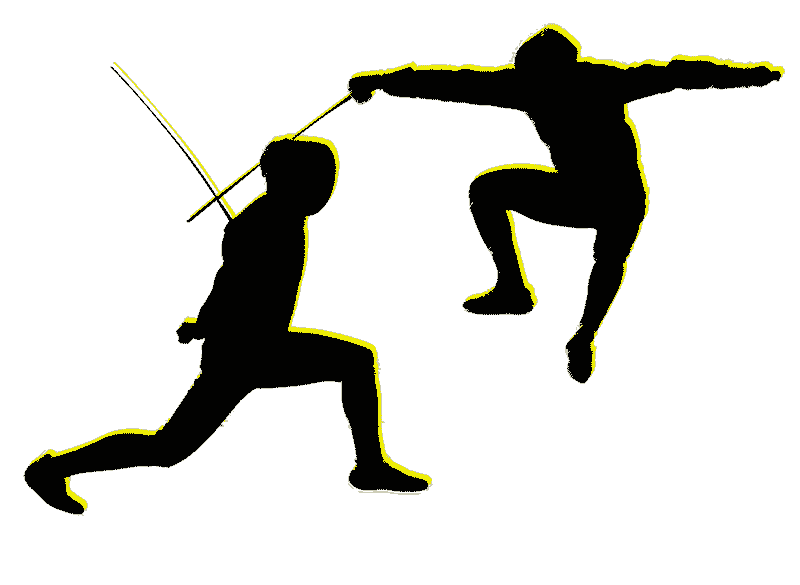


Leave a Comment: